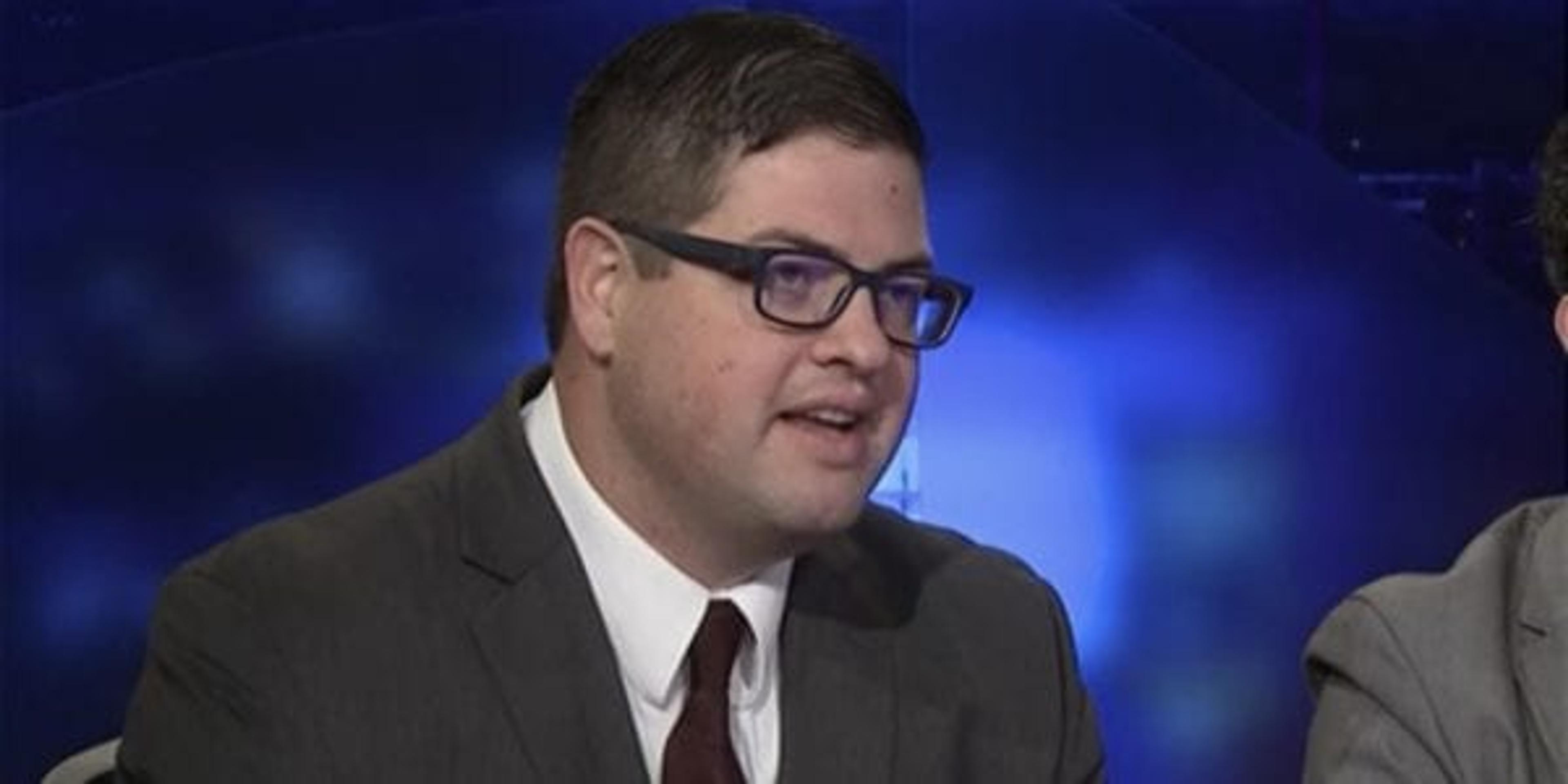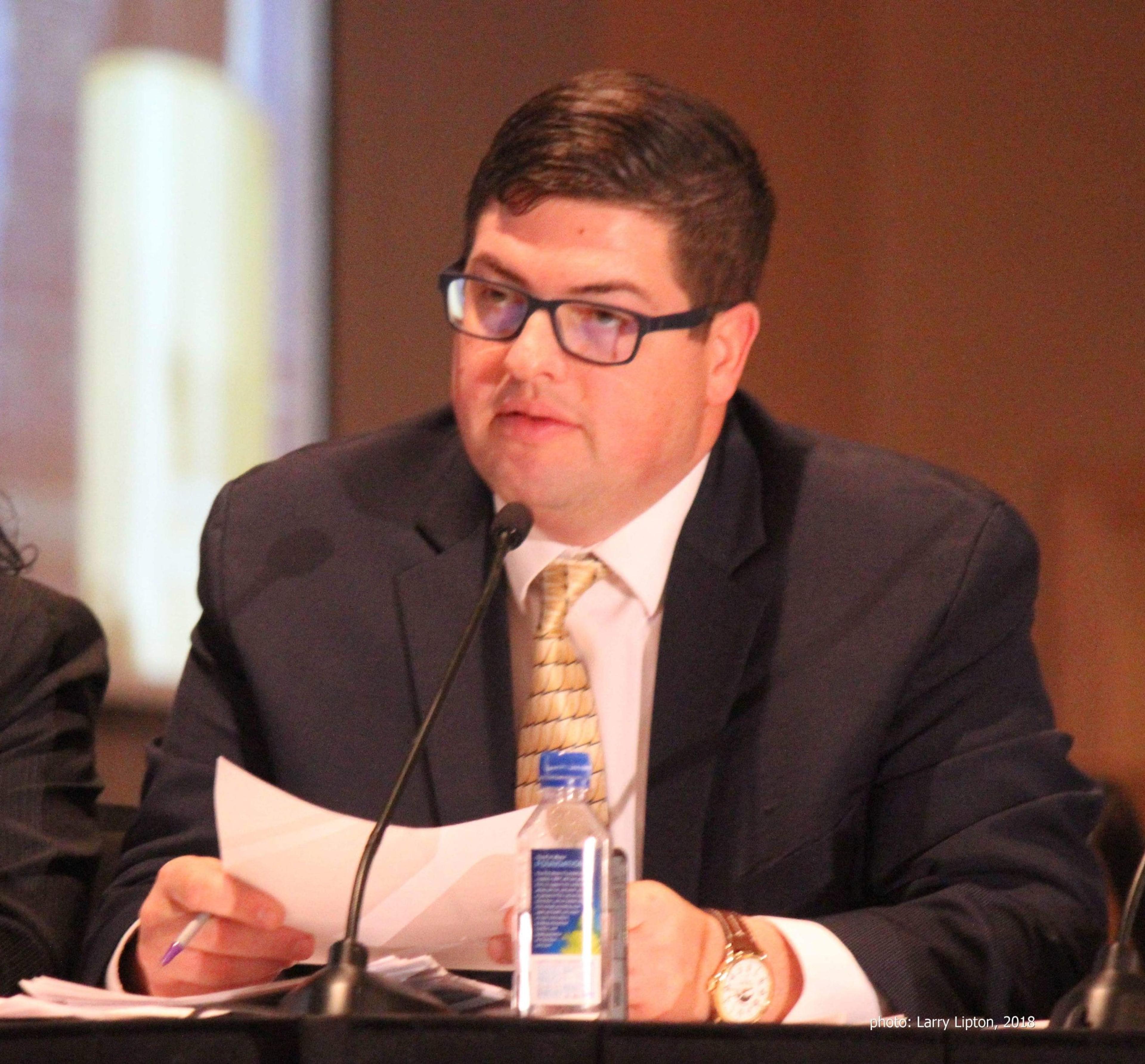Heart Attack Puts Life in Focus for Business Reporter

Julie Bitely
| 5 min read

As a reporter for Crain’s Detroit Business, Chad Livengood relishes the chase and challenge that a developing story provides.
On Saturday, May 5, 2018, his own story could have ended, were it not for a recognition on his part that something didn’t feel right. He was planting trees at his parents’ home in Chelsea, a chore he’d done many times over the years helping with the family landscaping business.
At 35, a heart attack wasn’t on Livengood’s radar. He chalked up the dull, persistent pain spreading across his chest to muscle strain from the morning’s labor. It continued throughout the afternoon, even making it hard to breathe at points. He took a break, took an aspirin and drove his then five-year-old daughter, Madison, home to St. Clair Shores.
It wasn’t until nearly six hours later – from the time he first felt the pain – that he drove himself to the emergency room. After he and Madison had returned home, he was relaxing on the couch watching TV and just couldn’t shake the pain. He went to bed but could feel his heart beating faster and faster.
“It wasn’t the ‘grab your left arm, I’m having a heart attack moment,’ but I knew something was wrong,” he said.
Scans showed an internal tear in one of his coronary arteries, which was blocking the flow of blood to his heart. Known as a spontaneous coronary artery dissection (SCAD), it’s not clear what causes this type of cardiac emergency. SCAD can happen to otherwise healthy individuals although it tends to affect women more often and is sometimes associated with giving birth. Famously, actor John Ritter died of SCAD at age 54. Other common SCAD factors include underlying blood vessel conditions, participating in extreme physical activity, emotional distress, inherited diseases, and very high untreated blood pressure.
Doctors said the aspirin Livengood took that May afternoon likely kept his blood from fully clotting.
“I’m really lucky to be alive,” he said.
Before the heart attack, Livengood had slightly elevated blood pressure and was a bit overweight. He conceded his diet wasn’t the healthiest. After a four-day stay in the hospital, he entered a “new normal” phase of life. New medications, a new diet and cardiac therapy sessions, as well as restrictions on how much weight he could pick up and a directive to cut back on his fast-paced work life were all part of the deal. His doctors didn’t want him to attend the annual Mackinac Policy Conference, a gathering of prominent state newsmakers and lawmakers, mixed with a frenzied pool of reporters trying to break stories from the island.
“I was somewhat depressed about being sidelined,” he said.
The reporter tapped to take his place had been working the rumored sale of Michigan Central Station to Ford Motor Co. Livengood kept working on that story while his colleagues were up north and broke the news, which proved to be a bit of a salve on the experience. He’s since learned he must let some stories go, for the sake of his health.

Livengood asking questions during a U.S. Senate debate last fall.
“I work in a fairly stressful industry and profession, particularly one that’s strained, but I have definitely slowed down. I do not sweat little things like I used to anymore and I’ve just learned to work smarter and swing for bigger stories and not try to swing at everything,” he said.
Life went on after the initial heart attack at a slightly slower pace under the watchful eye of his wife, Amanda, until a planned family vacation on Lake Michigan in July. A few days in, Livengood experienced shooting pain in the middle of his chest while he was going up the stairs from the beach to the lake house his family was staying at. He took nitroglycerin pills and chewed on aspirin, hoping for the best. He was driven to the local hospital and eventually transferred to Spectrum Health in Grand Rapids for further testing. While the initial tear had healed, the artery wall itself had collapsed. A stent was placed to act as a piece of scaffolding to hold up the artery wall and to keep the blood flowing through.
Livengood has had a few false alarms since then but doesn’t regret listening to his body and making the call to seek medical attention.
“I take chest pain pretty seriously now,” he said.
His story has forward momentum. Even though it took him a bit to feel comfortable even taking a walk around the block, he understands the need to work on his health, which includes exercise.
“You can’t live in fear of what may happen,” he said.
The rehab sessions he went through helped him feel more comfortable with movement again, up to and including jogging. He’s since joined a gym and credits his family with helping him stick to healthy dietary changes.
“I try to find ways to exercise and use my legs as much as possible because now I just know from this experience that I’ve got to take care of myself,” he said.
His cardiologist, Dr. Simone Cowan with Beaumont, has been a steadfast supporter, Livengood said. Scans of every artery from his waist up helped to ensure there weren’t any other signs of weakness or tears in his body. He’s doing everything within his power to protect his heart.
Essentially, Livengood has applied his skills as a reporter to his condition. He’s researched the causes and is working to implement an evidence-based action plan to keep him well and here for the ones he loves, particularly the “two beautiful women who rely on me,” his wife and daughter.
“It has definitely made me reconsider and think about things that I wasn’t really prepared to think about at age 35 like taking care of my family’s long-term needs if this were to take me some day,” he said.
“I have been diligent in not letting this get the best of me.”
See what Chad’s been working on here. If you want to read more heart survivor stories, start with these:
Photos courtesy of Chad Livengood





